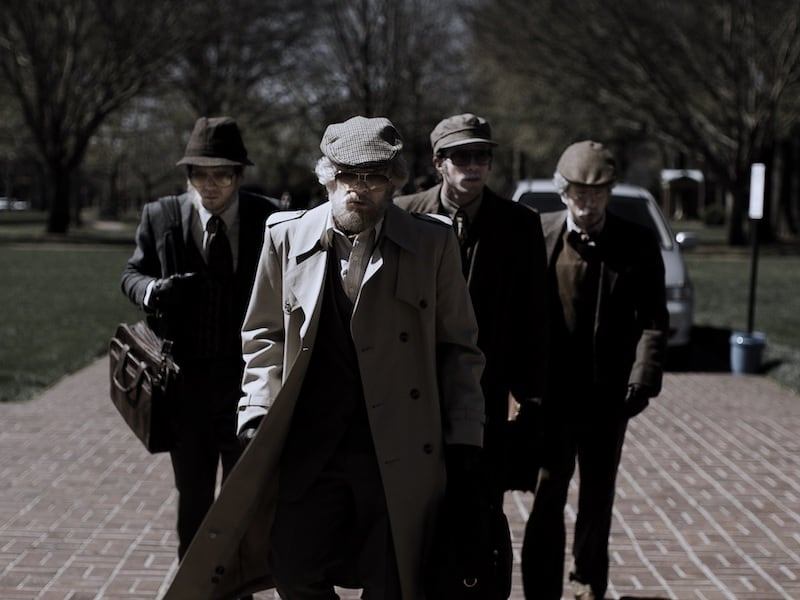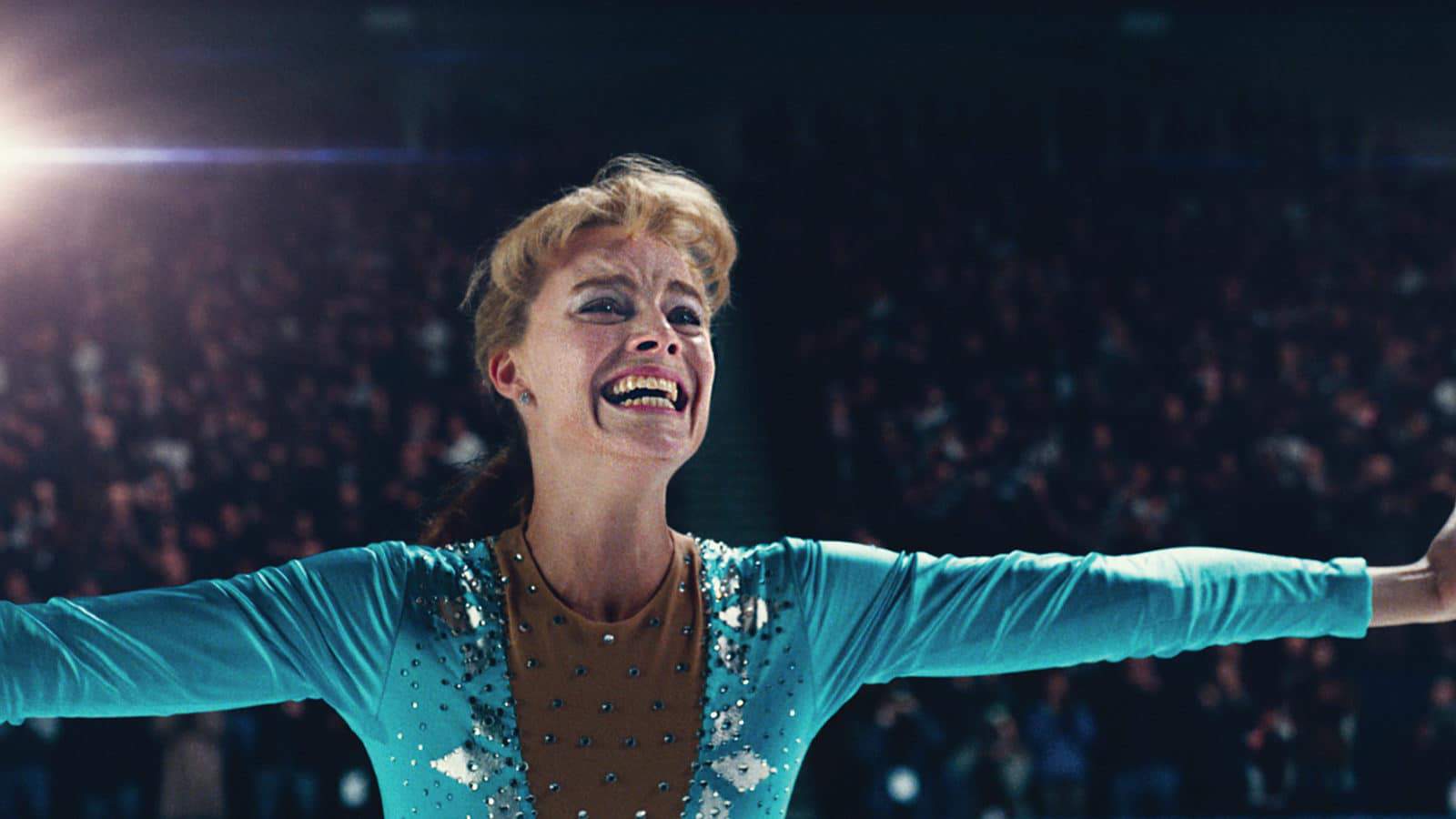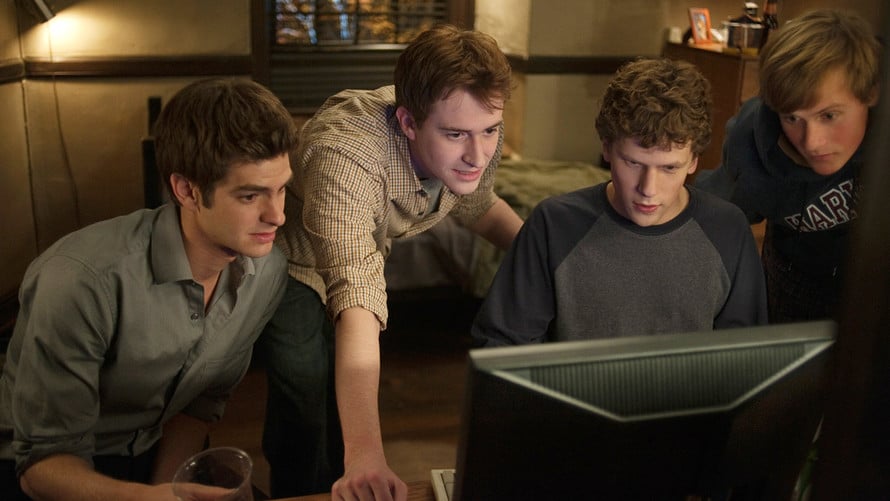
American Animals sets itself apart from other biopics pretty much instantly; aside from focusing on (and sympathizing with) people whose story isn’t particularly familiar to most viewers, Moviepass Ventures’ first release also boldly features its real subjects, four men waxing poetic about the time they tried to steal 12 million dollars in art and historical documents. This mixed format–mostly biopic with a little bit of angled documentary thrown in for good measure–does help viewers understand the circumstances surrounding the Kentucky library heist, but it doesn’t explain why the movie happened in the first place.
If the movies are any indication, it seems like we’re obsessed with watching people fail upwards or get away with something. By “we,” I’m of course referencing the mythic moviegoing audience that studio executives have in mind when they greenlight a project. And the aforementioned “people” who get the big-screen treatment are pretty much all white, of varying talent and income levels. So far this year, the phenomenon has reached Tonya Harding (I, Tonya), Tommy Wiseau (The Disaster Artist), and now the four students featured in American Animals. Each of these films is stylistically distinct, painstakingly framing their subjects as misunderstood rock-star types with all-American dreams and unconventional ways of achieving them. This trend is ironic for a few reasons, chief among them the uncomfortable truth that failing upward or getting away with something doesn’t seem nearly as appealing when its source isn’t an Oscar-bait film, but instead the 24-hour news cycle.

So why do good biopics happen to bad (or mediocre, or very questionable) people? Why did American Sniper make box office bank and The Greatest Showman inspire legions of musical-lovers to ignore P.T. Barnum’s profoundly shady history? Why do tons of morally conscious film buffs (myself included) revel in the shiny amoral glory of The Social Network? Why did The Wolf of Wall Street even happen? Here’s a simple answer: regardless of their various moral failings, these are all white protagonists who, on some level or another, actualize their specific, larger-than-life dreams. They’re the hyper-traditional image of the American dream, complete with satisfying montages of money, awards, and excess, and the “based on a true story” label just means that there’s a chance that the audience can do it too — only they’ll get it right this time. That’s the dominant narrative we’ve had for decades, and (white) audiences have historically eaten that stuff up. Until non-marginalized audiences signal loudly and clearly that we want something different, and until the filmmaking system makes quantifiable room for more diverse voices, we’ll continue to be inundated with movies about controversial, slightly famous cartoonists and controversial, slightly famous biographers.
The wrench in all this is that many of these films aren’t bad. I, Tonya, for example, is both a rarely-seen authentic portrait of abuse and ambition in the working class and a brazen standout that’s the exact opposite of the boring biopic stereotype. It’s easy to dislike something when watching it feels bad, but what about when the forces of great filmmaking conspire to make you enjoy a revisionist true story where bad guys seem a little like heroes? American Animals and movies like it usually feature exceptional, all-in actors (Evan Peters has never been better), endorphin-sparking soundtracks, and filmmaking intended to make each moment feel as epic as humanly possible. The best of these also incorporate convincing commentary about the irrelevance of their own status as fact-based movies, like when Tonya Harding (Margot Robbie) says in I, Tonya: “There’s no such thing as truth. It’s bullshit. Everyone has their own truth, and life just does whatever the fuck it wants.” Who cares if we’ve done bad things, these films seem to be saying, since nothing has rhyme or reason anyway?
Luckily, good ambitious anti-hero stories will likely never go away, but my hope is that the recent surplus of middling ones–the ones which mine obscure “untold stories” about white mediocrity, taking up space which could otherwise be used to tell fresh, diverse, and truly untold stories–are a trend that will eventually clear out.

Here’s a less simple answer to the question of antihero biopics; empathetic audiences like to imagine a world with room for moral complexity, sometimes to the point of ignoring reality. We see this every day in think pieces and round-table discussions attempting to explain the nuances and strategies supposedly hidden in the tweets of our political leaders. We do it to rationalize the behaviors of friends, family, and coworkers whose ideologies would be unacceptable to us if we weren’t close to them. And while shades of gray are real and essential to any discussion, this habit seems to me like a mechanism of self-protection more than anything else. We feel safe with what we know regardless of its inherent rightness or truth, whether what we know is our problematic families, our idea that the people in government must know what they’re doing, or our favorite white-guys-failing-upwards movies. But who really wants to play it safe all the time?
There’s a vast, exciting world out there, full of incredible true stories that are waiting to be discovered those who dare to look beyond what’s already been done. So why not try?
Related Topics: American Animals, american sniper, Biopics, I Tonya, The Disaster Artist, The Greatest Showman, the social network

